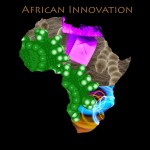Research Development
Remarkable achievements in science and technology have fallen short of addressing major global challenges such as food insecurity, environmental degradation, energy poverty and underdevelopment. While addressing these challenges has been a great moral and political imperative of our time, development policy and practices often work against the interests of poor people, aggravating the problem. We focus on diverse perspectives in technology and development and their impacts, and collaborate with global stakeholders to implement innovative ideas for more equitable and resilient outcomes. Fully acknowledging the complexities of these challenges, we draw distinction between “top-down” approaches and “participatory” or pragmatic views to development, and seek openness to diverse social responses to development challenges. This quest demands cultural diversity, democratic accountability, and continual debate of global trends.
-
Adaptation for a High-Energy Planet
In the winter of 2015, the world community agreed in Paris on a framework for lowering carbon emissions in the coming decades. This progress, though laudable, offers little comfort to the billions of people around the planet still vulnerable and…
-
Our High-Energy Planet
In recent years, “energy poverty” has emerged as a central concept in international conversations on energy, climate, and development policy. While the term does not have one universally accepted definition, it is used by academics and development professionals as a…
-
High-Energy Innovation
Innovation in clean energy technologies is a truly global phenomenon, and the most active efforts to develop next-generation technologies are in rapidly industrializing countries, where energy demand is high and deployment opportunities are abundant. From advanced nuclear reactor technologies in…
-
Alternative Imaginations Research Cluster
Alternative Imaginations (AI) Research Cluster is an intellectual space that seeks to cultivate complementary perspectives on science and technology to address inequality, ecological harmony and sustainability. AI’s mission is to promote dialogue and understanding of alternative knowledge systems in assessing…
-
The African Innovation Project

Began: 2012 Ended: Ongoing Project Leaders: Jamey Wetmore, associate professor, CSPO and CNS-ASU G. Pascal Zachary, professor of practice, CSPO Matthew Harsh, assistant professor, Concordia University (Montreal) Typically when scholars think about technology and Africa it is in the context…
-
Implementing Climate Pragmatism

Political gridlock, ineffective policies, and unmet emissions targets continue to hamper the global response to climate change. The agreement reached in Paris in 2015 marked a new level of commitment from the international community to slow global warming, but there…
-
Capacity Building in Computer Science as a Driver of Innovation
A significant computer science research community has been quietly emerging in sub-Saharan Africa, and with it the potential to fuel new and transformative innovation. Computer science and engineering underlie numerous innovations – from mobile telephony to geographic information systems –…
-
Adaptive Pathways to Climate Change (APaCC): Livestock and Livelihood Systems in Gandaki River Basin

Integrated crop and livestock-based livelihoods of Nepalese farmers—characterized by small holding and low levels of development —are extremely sensitive to climate variability and change. Livestock is not only an important source of both draught power and animal protein, the latter…